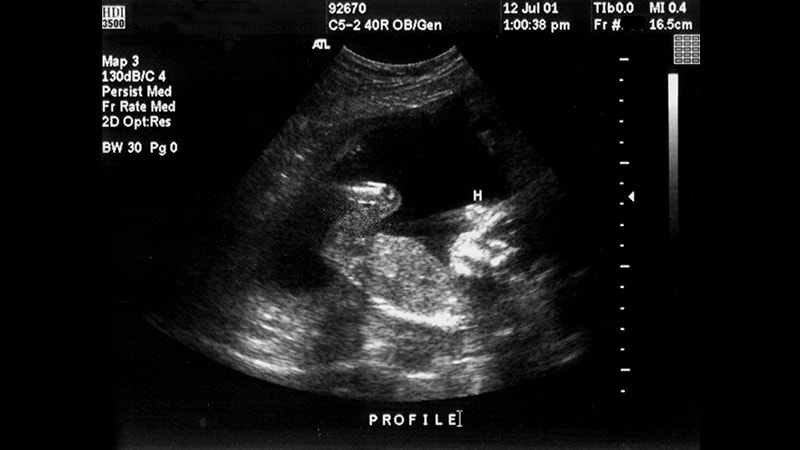AI-Powered Ultrasonography Matches Credentialed Sonographers in Estimating Gestational Age in Low-Resource Settings
The study aimed to evaluate the accuracy of an AI-enabled ultrasonography tool in estimating gestational age compared to standard ultrasonography performed by credentialed sonographers. The researchers conducted a prospective study with 400 pregnant individuals in Lusaka, Zambia, and Chapel Hill, North Carolina.
During the study:
- Sonographers established gestational age during an index visit.
- At follow-up visits, novice users performed blind sweeps of the maternal abdomen using the AI-enabled device, while credentialed sonographers conducted fetal biometry with high-specification machines to estimate gestational age.
- The primary outcome was the mean absolute error of the AI approach vs. standard ultrasonography in the primary evaluation window (14-27 weeks).
The key findings were:
- The mean absolute error was similar for AI and standard ultrasonography, with a difference of 0.2 days (95% CI, −0.1 to 0.5).
- The percentage of gestational age estimates within 7 days of the established gestational age was comparable between the AI tool and standard ultrasonography (90.7% vs 92.5%).
- The AI tool performed consistently across study sites and body mass index categories.
The researchers concluded that the AI-powered ultrasonography tool can enable novice users to estimate gestational age as accurately as credentialed sonographers, which has immediate implications for improving obstetrical care in low-resource settings. However, the authors noted that this technology is not a "silver bullet" and that healthcare systems also need trained professionals, basic equipment, and a referral system to manage pregnancy complications.
요약 맞춤 설정
AI로 다시 쓰기
인용 생성
소스 번역
다른 언어로
마인드맵 생성
소스 콘텐츠 기반
소스 방문
www.medscape.com
AI Matches Sonographers in Estimating Gestational Age
핵심 통찰 요약
by Edited Jake ... 게시일 www.medscape.com 08-09-2024
https://www.medscape.com/viewarticle/ai-matches-sonographers-estimating-gestational-age-2024a1000epk
더 깊은 질문
